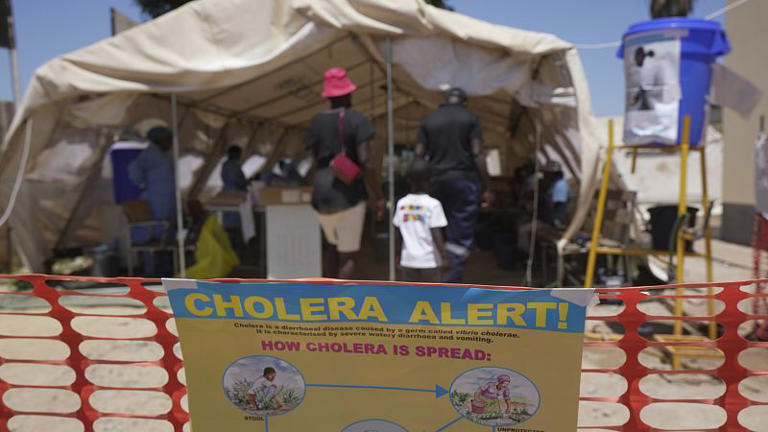Zambia is dealing with one of its worst cholera outbreaks in recent years, as 351 people have died and nearly 9,000 active cases have been registered. Health workers say they are scrambling to contain the crisis that has the potential to be the worst the country has seen since the first in 1977.
On Friday, relatives of people being treated gathered outside a stadium in the capital, Lusaka, to wait for information about their loved ones.
President Hakainde Hichilema has urged people to relocate from towns to villages, as poor sanitation in some densely populated urban areas is a good breeding ground for cholera.
The prohibition on funerals and family burials has remained in place. More emergency rules are being brought in, according to the country’s health ministry.
Cholera is transmitted through the ingestion of contaminated food and/or water. Experts have suggested climate change is responsible for heavy rainfalls that contaminate drinking water for those living in crowded, poorer areas.
Churches across Zambia have received a mandate to restrict worship sessions to a maximum of two hours.
The directive, issued by Ndiwa Mutelo, a high-ranking official overseeing religious affairs, also prohibits the sale of perishable and ready-to-eat foods within church premises.
This latest intervention aims to mitigate the impact of the cholera epidemic, emphasizing the collective responsibility of religious institutions in safeguarding public health.
To further minimize the risk of disease transmission, worshippers are strongly advised to refrain from handshakes and hugs. In an official statement, Mr. Mutelo emphasized the importance of maintaining hygiene within worship centres.
Schools in Zambia have remained closed following the festive holidays due to the health crisis, causing a delayed start to the academic year.
The Ministry of Education announced on Thursday that both primary and secondary students, originally scheduled to return next Monday, will now resume classes on January 29.
Zambia’s education minister has issued directives to ensure the safety of students and staff upon their return. The minister emphasized the need for a thorough cleaning of all learning institutions, the provision of clean water and sanitation facilities, the installation of adequate handwashing points, and the availability of disinfectants.













